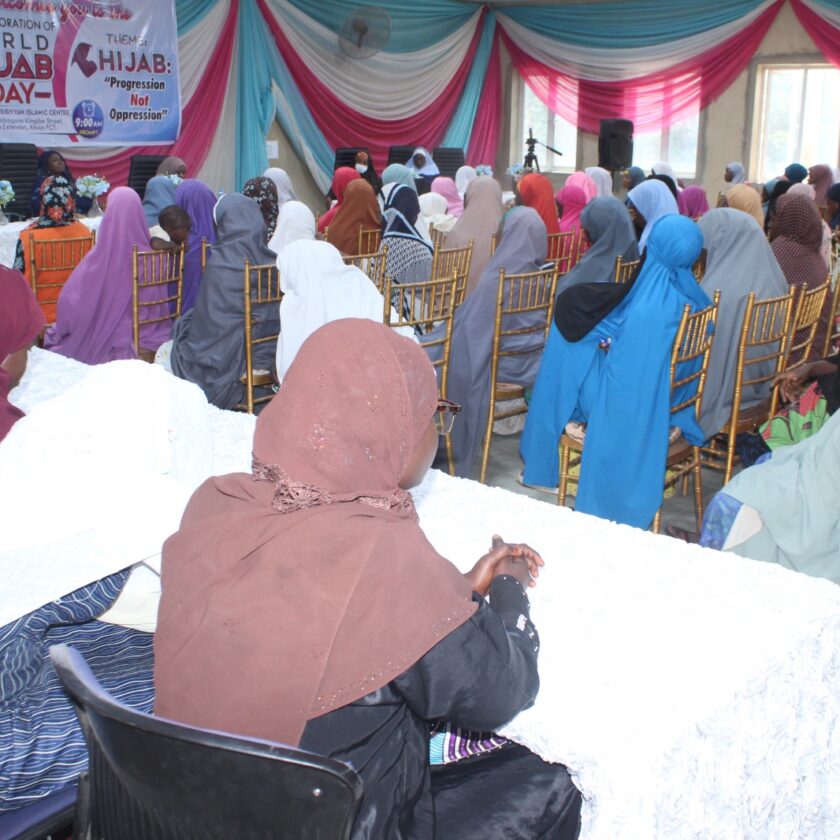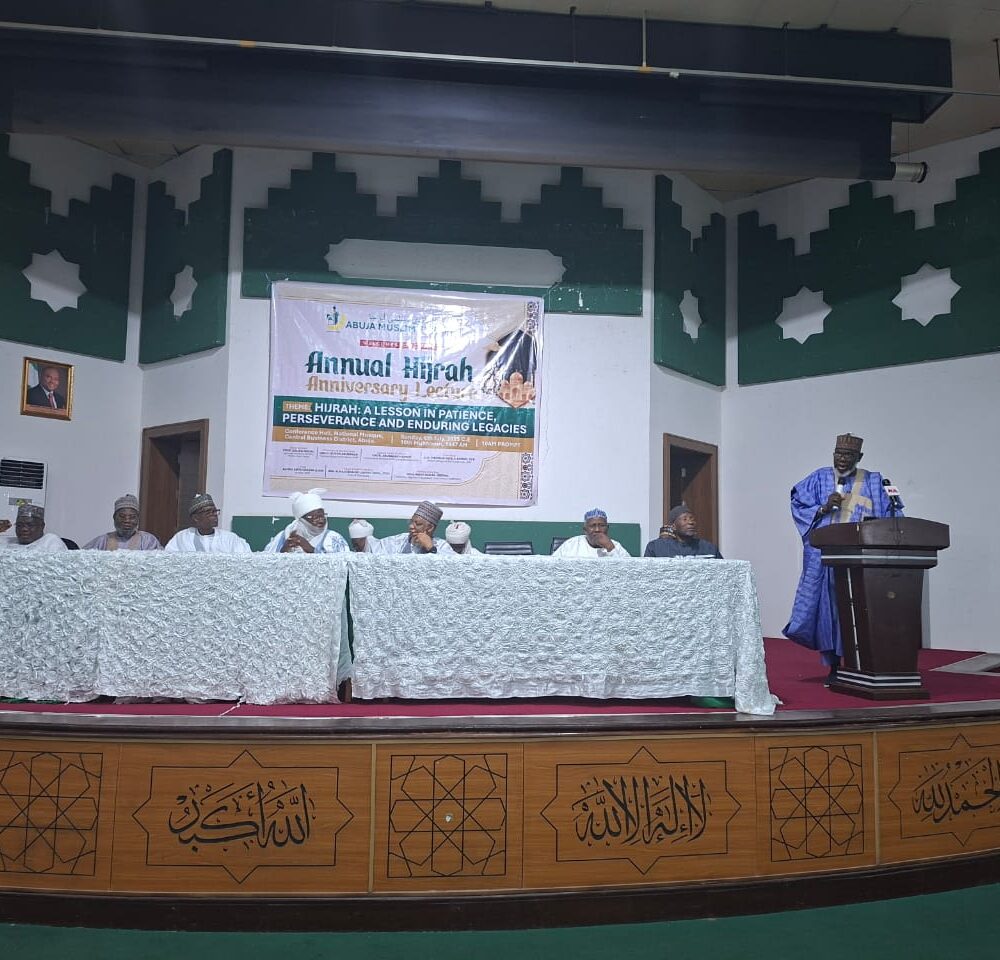In the name of Allah, Most Merciful, Bestower of Mercy
All praise is due to Allah, Lord of all creation. May the peace and blessings of Allah be upon the Messenger, his family, his Companions and those who follow him till the Hour is established.
Dear brothers and sisters, throughout the civilised world governments, institutions, people in authority and the public create rules to protect society in order to establish a safer world. Without these rules and guidance, human beings would lose all bearing and sense of morality, and society would fall into anarchy and chaos. Indeed our children and future generations will be the leaders of tomorrow and thus their upbringing is a matter of great importance and key to whether we can maintain a peaceful, respectful and orderly society. Research strongly indicates that parenting has the single greatest influence on a child’s development and understanding the environment a child grows up in contributes to their spiritual, emotional, physical, social and intellectual development. And these are key factors that indicate whether a child will grow to become a responsible and happy adult. Thus, positive parenting is essential to safeguard future societies and to foster peace at home and in communities.
Although there are similarities in parenting concepts globally, it is intriguing how parenting styles differ from culture to culture. They take into account various factors such as the child’s physical and social environment, customs and practices of child care in different countries and the parents or carers understanding of parental responsibility. Regardless of the varying global and cultural parenting strategies, Islamic teachings in relation to parenting are holistic and universal concepts for every parent worldwide; these teachings are not restricted exclusively to Muslim parents.
Respected servants of Allah, the family, which is the basic unit of civilisation, is now disintegrating. Islam’s family system brings the rights of the husband, wife, children, and relatives into a fine equilibrium. It nourishes unselfish behaviour, generosity, and love in the framework of a well-organised family system. The peace and security offered by a stable family unit is greatly valued, and it is seen as essential for the spiritual growth of its members. A harmonious social order is created by the existence of extended families and by treasuring children.
One of the reasons that the Islamic family works is because of its clearly defined structure, where each member of the household knows his or her role. The Prophet Muhammad (Peace be upon him) said:
“Each of you is a shepherd, and all of you are responsible for your flocks.” [Al-Bukhari and Muslim]
The father is the shepherd over his family, training them, educating them, protecting them, providing for them, and striving to be their role model and guide in his capacity as head of the household. The mother is the shepherd over the house, guarding it and engendering in it the wholesome, loving environment that is necessary for a happy and healthy family life. She is also the one who is primarily responsible for the children’s guidance and education. Were it not for the fact that one of the parents assumed the leadership role, then inevitably there would be perpetual disputation and fighting, leading to family breakdown – just as there would be in any organisation which lacked any single hierarchical authority. Allah the Almighty says:
“Allah puts forth a similitude: a (servant) man belonging to many partners, disputing with one another, and a man belonging entirely to one master. Are those two equal in comparison? All the praises and thanks be to Allah! But most of them know not.” [Qur’an, 39:29]
It is only logical that the one who is naturally the physically and emotionally stronger of the two parents is made head of the household: the male.
“…And they (women) have rights (over their husbands) similar (to the rights of their husbands) over them – according to what is equitable. But men have a degree (of responsibility, etc.) over them…” [Qur’an, 2:228]
As for the children, the fruits of their parents love, Islam lays down comprehensive morals enjoining parental responsibility and the child’s reciprocal dutifulness to its parents. Allah the Most High says:
“And treat your parents with kindness. If one or both of them attain old age in your care, never say to them a word (suggesting) disgust, nor reproach them, but address them with reverent speech. And humble yourself out of mercy before them, and pray: ‘My Lord! Be merciful to them for having cared for me in my childhood.’” [Qur’an, 17:23-4]
Obviously, if the parents fail to inculcate the fear of Allah within their children from an early age because they are themselves heedless, then they cannot expect to see righteous gratitude returned to them. Hence, Allah’s severe warning in His Book:
“O you who believe! Ward off from yourselves and your families a Fire (Hell) whose fuel is men and stones.” [Qur’an, 66:6]
If the parents do indeed strive to raise their children upon righteousness, then, as the Prophet (Peace be upon him) said:
“When the son of Adam dies, all his actions have ceased except [three, a continuing charity, beneficial knowledge and] a righteous child who prays for their parent.” [Al-Bukhari and Muslim]
Regardless of how the parents raise their children, and irrespective of their own religion (or lack, thereof), the obedience and reverence that a Muslim son or daughter is required to show them is second only to the obedience due to the Creator Himself. Thus His reminder:
“And (remember) when We took a covenant from the Children of Israel, (saying): ‘Worship none but Allah and be dutiful and good to parents, and to kindred, and to orphans and to the poor, and speak good to people, and perform the prayer, and give the alms.’” [Qur’an, 2:83]
In fact, it is quite common to hear of elderly non-Muslims converting to Islam as a result of the increased care and dutifulness their children gave them following their (i.e. the children’s) becoming Muslims.
“Say (O Muhammad): ‘Come, I will recite what your Lord has prohibited you from: Join not anything in worship with Him; be good and dutiful to your parents; kill not your children because of poverty – We provide sustenance for you and for them…’” [Qur’an, 6:151]
While the child is obliged to show obedience to both parents, Islam singles out the mother as being the one deserving the lion’s share of loving gratitude and kindness. When the Prophet Muhammad was asked, “O Messenger of Allah! Who from amongst mankind warrants the best companionship from me?” he replied: “Your mother.” The man asked: “Then who?” The Prophet said: “Your mother.” The man asked: “Then who?” The Prophet repeated: “Your mother.” Again, the man asked: ‘Then who?’ The Prophet finally said: “(Then) your father.” [Al-Bukhari and Muslim]
“And We have enjoined on man to be dutiful and kind to his parents. His mother bears him with hardship and she brings him forth with hardship, and the bearing of him, and the weaning of him is thirty (30) months, till when he attains full strength and reaches forty years, he says: ‘My Lord! Grant me the power and ability that I may be grateful for Your Favour which You have bestowed upon me and upon my parents, and that I may do righteous good deeds, such as please You, and make my off-spring good. Truly, I have turned to You in repentance, and truly, I am one of the Muslims (submitting to Your Will).’” [Qur’an, 46:15]
Dear brothers and sisters, there exists in Islam a general principle that states that what is good for one is good for another. Or, in the words of the Prophet Muhammad (Peace be upon him):
“None of you truly believes until he loves for his brother what he loves for himself.” [Al-Bukhari and Muslim]
As could be expected, this principle finds its greatest expression in a Muslim family, the nucleus of the Islamic society. Nevertheless, the dutifulness of the child to its parents is, in truth, extended to all the elders of the community. The mercy and concern that the parents have for their children is likewise extended to all the young ones. Actually, it is not as if the Muslim has a choice in such matters. After all, the Prophet (Peace be upon him) did say:
“He who does not show compassion to our young, nor honour our elders, is not from us.” [Abu Dawud and Al-Tirmidhi]
Is it any wonder, then, that so many people, raised as non-Muslims, find what they are looking for, what they have always believed to have been good and true, in the religion of Islam? A religion where they are immediately and warmly welcomed as members of one loving family.
“Righteousness is not that you turn your faces to the east and the west. But righteous is the one who believes in Allah, the Last Day, the Angels, the Scripture and the Prophets; who gives his wealth, in spite of love for it, to kinsfolk, orphans, the poor, the wayfarer, to those who ask, and to set slaves free. And (righteous are) those who pray, pay alms, honour their agreements, and are patient in (times of) poverty, ailment and during conflict. Such are the people of truth. And they are the God-Fearing.” [Qur’an, 2:177]
All praise is due to Allah, Lord of the worlds. May the peace, blessings and salutations of Allah be upon our noble Messenger, Muhammad, and upon his family, his Companions and his true followers.
Murtadha Muhammad Gusau is the Chief Imam of Nagazi-Uvete Jumu’ah and the late Alhaji Abdur-Rahman Okene’s Mosques, Okene, Kogi State, Nigeria. He can be reached via: [email protected] or +2348038289761.
This Jumu’ah Khutbah (Friday Sermon) was prepared for delivery today, Friday, Rajab 4, 1441 A. H. (February 28, 2020





